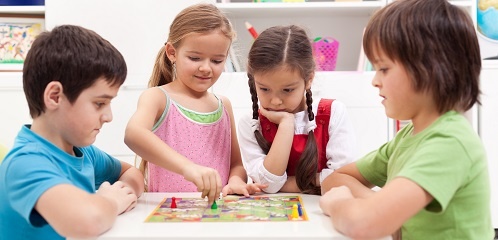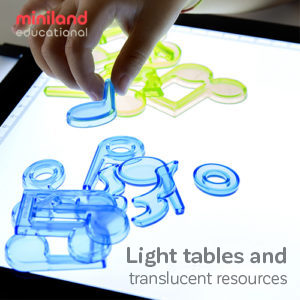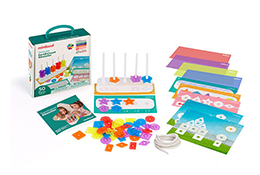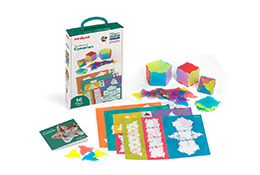They don’t respond well to getting spoken to endlessly and asked to do task after task. That is why interactive games for children are one of the best ways to teach young students. They are a great way to keep lessons fun and interesting.
Not only are they an excellent way to keep your children engaged with their lessons – but it also comes with a whole host of other benefits for young children. They help to develop the necessary skills for the next year at school while providing a wonderful source of excitement and entertainment.
These are just some of the benefits of interactive games for children that should encourage you to use them in your home:
Physical development and motor skills
One of the best things about interactive games is that it often requires children to work with their hands or bodies in some way. This is particularly important for toddlers or kindergarten children developing their motor skills.

Physical games such as Twister help to strengthen core muscles, improve balance and strength, as well as improve their hand-eye coordination. It also encourages focusing with their brains while undergoing physical exertion – further strengthening the bond between their body and brain.
Memory retention and mental development
Board games and other interactive games for children often challenge their minds and get them actively thinking about how they can advance to the next level. This helps them mentally develop and can also prove handy for children that have attention difficulties.
The option of rewards, moving up in the game and winning are often incentive enough to keep them occupied and interested in the game. Added to this – many games are based around memory retention, and this helps children hone their memory skills, and games such as quizzes improve their general knowledge and academics.
Social skills
Another wonderful benefit of interactive games for children is helping them to develop their social skills. Games often require teamwork and teaches children to work together, cooperate and learn to trust one another.
Social skills are an important developmental milestone that will help your children throughout their lives, and interactive games from a young age can give them a great foundation to build upon as they grow.
Relationships and friendships
One of the most important things in life is having a solid friendship base, and learning how to interact and form relationships is an essential skill for little ones to develop.

Interactive games help children to work out how to gracefully accept both losing and winning, they form a sense of sportsmanship and discipline. It provides a platform to teach them how to interact with both adults and children – learning how to successfully form relationships as they go.
Teaching children is no easy feat, and their high energy levels and short attention span can make it incredibly hard to keep them interested in learning.
The Miniland family range is made up of interactive toys for children that encourage mental and physical development that will assist them as they grow and learn. Contact us at Minilandfor more ideas, information and advice on education and teaching your children after school.


